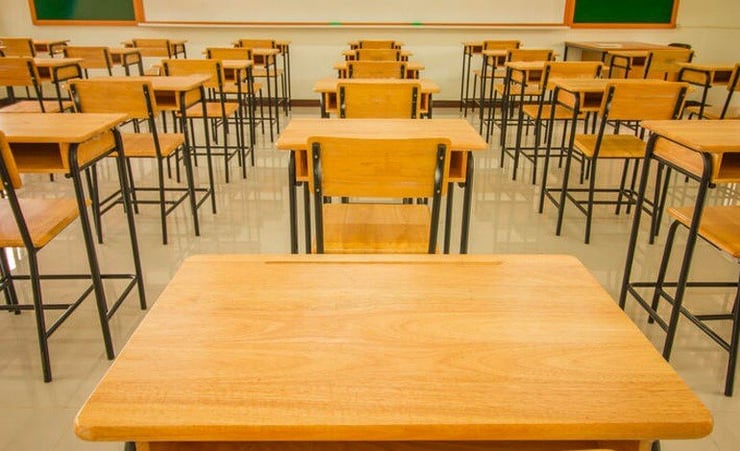Auckland primary principals relieved to remain shut

Some Auckland primary school principals are relieved they are not reopening their classrooms to more children today.
The region's schools have now been closed for 10 weeks - eight weeks of classroom time and two weeks of school holidays - though some children have been permitted to go to school in alert level 3.
Weymouth Primary School principal Saane Faaofo-Oldehaver said the school had about 40 students a day in bubbles under alert level 3 provisions and she was relieved it was not reopening more widely.
"It's about health and safety of you and your family first and if I think of our community here in Weymouth, we've only got about 45 percent of this community vaccinated," she said.
"For us, I think we're happier that our children are home and they are safe and they're still doing learning from home."
Rowandale School principal Karl Vasau was another who said the city's primary schools should not reopen yet, though the lockdown was harming many children's learning.
"We will see the effects of this for many years to come because children have just missed out on that valuable connection with their teacher, their learning programmes and as well as making wonderful memories at school and being with their friends and developing those relationship things," he said.
"On the other side of that, it's important to be safe. To open up a school where of 700 children where none of them are vaccinated because they're all under the age of 12 creates a situation I don't want to be in."
Vasau said a lot of parents were worried about their children's education and it was important that they returned to school when it was safe.
But he said even if schools did resume before the end of the year, the focus would be on social and emotional links rather than on setting targets for formal learning.
Newmarket School principal Wendy Koefoed said remote learning was a poor substitute for being in a classroom but she accepted that primary schools had to be patient.
"No matter how good our remote learning programmes are, having our kids onsite and having face-toface interactions and engaging activities is just so important so yeah, it is a bit sad seeing the secondaries go back but they are a priority and we just have to be a little bit patient and wait for our communities to be a little bit safer before our younger children who are not vaccinated come back into schools," she said.
Koefoed said most of her pupils were lucky enough to be learning well from home and she was more worried about the mental and emotional toll on them.
"I think of these at home, the loneliness, their worries about the future. We want them back at schools so we can get those heads cleared from some of those worries so they can communicate, they can play, they can run."
Learning when they are not learning
Massey University professor Roseanna Bourke and John O'Neill studied primary-aged children's informal learning during last year's national lockdown.
Bourke said the research found children stuck at home learned from everyday situations.
She said they might use maths and reading while helping their parents with household jobs, but they also learned from day-to-day interactions in their homes.
"One child who was having issues with their sibling would write her mother copious notes and letters and leave them under her pillow, her bedroom pillow for her mum to read each night. And so children were writing with a purpose, they developed their own strategies, they found out things about themselves that they didn't know," she said.
She said children in lockdown even learned when they had nothing to do.
"Even children getting bored and understanding what boredom means and how to actively take themselves out of that boredom and into developing what they enjoy learning and becoming more creative in their learning, the children were very aware of that, as they were with anger, emotional reactions to siblings."
Bourke said some children learned more about their culture and traditions, and they learned from events such as birthdays, the death of pets, and holidays such as Anzac Day.
She said children would not be far behind in their traditional learning and their experience of lockdown would stand them in good stead when they returned to class.
"They will go back to school knowing they are learners and they then need to apply it into the school setting," she said.
The Education Ministry previously reported that by the end of last year test results for primary school children showed little impact from the lockdown.



